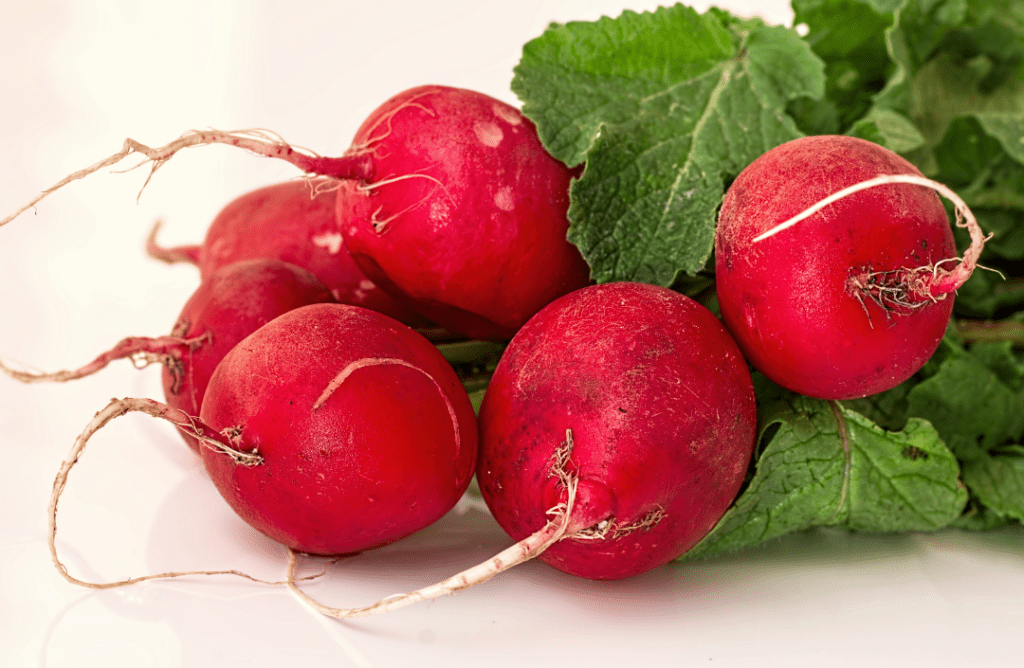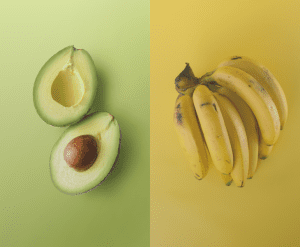
Did you know that radishes aren’t just for salads? When roasted, they transform into a tender, flavorful side dish with a milder taste and impressive nutritional perks. But the big question is—are roasted radishes good for you?
Let’s explore the health benefits of roasted radishes, how they compare to raw ones, and why you should consider adding them to your plate.
Table of Contents
Why Consider Roasted Radishes for Your Diet?
Roasting radishes brings out a natural sweetness while maintaining essential nutrients. They become less peppery, more versatile, and easier to digest.
Key Nutritional Value of Roasted Radishes
- Low in calories: About 20 calories per cup
- High in fiber: Great for digestion and satiety
- Rich in antioxidants: Like vitamin C and flavonoids
- Contains potassium, calcium, and folate
Roasted radishes also support heart health, aid in weight loss, and contribute to immune support.

What Happens When You Roast Radishes?
Does roasting destroy nutrients?
While heat can reduce some water-soluble vitamins like vitamin C, roasting retains most of radish’s antioxidants and fiber. It’s a trade-off with benefits—cooking makes radishes gentler on the stomach and more appealing to picky eaters.
Healthier than fried vegetables?
Absolutely. Unlike deep-frying, roasting uses less oil, keeps fat low, and boosts flavor naturally. It’s one of the healthiest ways to prepare vegetables.
Health Benefits of Roasted Radishes
1. Aids Digestion and Promotes Gut Health
Roasted radishes are a great source of dietary fiber, especially when eaten with the skin on. Fiber plays a vital role in promoting healthy digestion by adding bulk to stool, regulating bowel movements, and preventing constipation.
In addition to fiber, radishes contain compounds like glucosinolates and enzymes that support liver function and enhance the body’s natural detoxification processes. The roasting process makes radishes gentler on the stomach, which can benefit individuals who experience bloating or gas from eating raw vegetables.
A well-functioning digestive system is key to nutrient absorption, energy production, and immune resilience. Adding roasted radishes to your meals can help create a balanced gut environment.
2. Supports Heart Health and Blood Pressure Control
One of the standout nutrients in roasted radishes is potassium, a mineral that plays a crucial role in maintaining healthy blood pressure levels. Potassium helps balance sodium in the body, relaxes blood vessel walls, and promotes better circulation.
Roasted radishes are naturally low in cholesterol, saturated fat, and calories, making them heart-smart food choices. They also contain anthocyanins, plant compounds with antioxidant properties that may help reduce the risk of heart disease by protecting against oxidative stress and inflammation.
Regular consumption of potassium-rich, low-fat vegetables like radishes is associated with improved cardiovascular health and reduced risk of hypertension and stroke.
3. Boosts Immunity and Fights Free Radicals
Vitamin C is a key immune-boosting antioxidant found in both raw and roasted radishes. While some vitamin C content is reduced during roasting, a significant amount is retained—especially when radishes are roasted at moderate temperatures.
Vitamin C supports the production of white blood cells, which are essential for fighting off infections and viruses. It also protects your cells from oxidative damage caused by free radicals, which can weaken the immune system over time.
In addition to vitamin C, radishes offer antibacterial and antifungal compounds that can support your body’s defense system. Including roasted radishes in your diet can help strengthen immunity, especially during flu season or times of high stress.
4. Anti-inflammatory and Potential Cancer-Fighting Properties

Roasted radishes contain a class of compounds known as isothiocyanates, which are also found in other cruciferous vegetables like broccoli and kale. These compounds are well-known for their anti-inflammatory and detoxifying effects.
Research suggests that isothiocyanates may help neutralize carcinogens, inhibit tumor development, and slow the spread of cancer cells in the body [1]. Although roasting can slightly reduce these compounds, many of their cancer-fighting properties remain intact after cooking.
Chronic inflammation is linked to numerous health problems including heart disease, arthritis, and autoimmune disorders. Including anti-inflammatory vegetables like roasted radishes in your weekly meals can be a simple but powerful step toward long-term wellness.
How to Roast Radishes the Healthy Way
Basic Roasted Radish Recipe
Ingredients:
- 2 cups radishes (halved)
- 1 tbsp olive oil
- Salt and pepper to taste
- Optional: garlic, herbs like thyme or rosemary
Instructions:
- Preheat oven to 425°F (220°C).
- Toss radishes with oil, salt, and herbs.
- Roast on a baking sheet for 20–25 minutes or until tender and golden.
You can also try air fryer roasted radishes for an even healthier option.
Are Roasted Radishes Better Than Raw?
| Comparison | Raw Radishes | Roasted Radishes |
|---|---|---|
| Taste | Peppery, crisp | Mild, slightly sweet |
| Digestibility | May cause bloating | Easier on the stomach |
| Nutrient Absorption | Lower for some nutrients | Higher for antioxidants |

If you’re sensitive to raw vegetables, roasted radishes are a gentler, gut-friendly choice.
Related Questions About Roasted Radishes
Are roasted radishes good for weight loss?
Yes! Roasted radishes are low-calorie and high in fiber, helping you feel full longer—perfect for weight management.
Can diabetics eat roasted radishes?
Absolutely. Radishes have a low glycemic index, making them a smart carb option for people with diabetes.
Do roasted radishes cause gas?
Not as much as raw radishes. Roasting breaks down compounds that can cause bloating or gas in some people.
Easy Ways to Include Roasted Radishes in Meals
- As a Side Dish: Serve them with grilled chicken, salmon, or tofu for a balanced meal.
- In Grain Bowls: Toss roasted radishes with quinoa, kale, and a lemon-tahini dressing.
- With Breakfast: Add them to a veggie-packed omelet or breakfast hash.
Final Thoughts: Are Roasted Radishes Good for You?
Yes, roasted radishes are good for you—they’re a nutritious, low-calorie, and flavorful way to support your health. Whether you’re eating clean, managing weight, or just looking for veggie variety, roasted radishes deserve a spot on your plate.
They’re easy to prepare, family-friendly, and offer anti-inflammatory, heart-friendly, and gut-loving benefits.
Ready to Try Roasted Radishes?
Explore how this simple root veggie can boost your meals and your health. Don’t forget to share your favorite way to enjoy radishes in the comments!
Want more healthy recipes? Check out our 35 Diabetic-Friendly Delicious Recipes on Etsy.
Stay inspired—follow The PlantTube Blog for more plant-powered nutrition tips.








